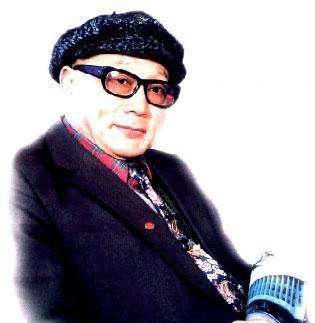
Niu Decao (1933-1998), formerly known as Niu Yulin and formerly known as Niu Junguo, was a native of Kaifeng, Henan. , a national first-class actor, the former leader of the Hebi Yu Opera Troupe.
Niu Decao grew up in a poor family and followed his mother to wander and beg on the banks of the Yellow River. He has loved Yu opera since childhood, and at the age of 10, he studied with the famous Master Li Xiaoyao, specializing in literary ugliness, especially good at official ugliness. Due to his diligence and talent, he appeared on stage at the age of 12 in the Kaifeng area. In 1947, he joined the Kaifeng Peace Drama Society and soon became a pillar of the stage. In 1954, he was transferred to the Yellow River Cultural and Labor Troupe. In 1957, under the guidance of the famous Peking Opera clown performance artist Xiao Changhua, his skills were great. In 1958, he was transferred to hebi Yu Opera Troupe.
Its main attack on ugly deeds, good at acting in literature and ugliness, singing, reading, doing, playing are excellent, simple and free performances are their own genres, unique style, and gradually become a Yu opera clown artist, and become the founder of the cattle clown, in the traditional drama and modern drama to create many different personalities, funny and humorous, vivid and distinct artistic images. In particular, the roles of Tang Cheng, Zhang Cang, Jiang Laoxiao, Zhang Hongyuan and other roles played in his representative plays "Tang Zhi County Trial Commandment", "Rolling Cylinder", "Picking Son-in-Law", and "Writing Articles" left a deep impression on the audience.
In traditional drama, the clown is always ridiculed and ridiculed. However, the image of Tang Cheng, the "Seven Sesame Palaces" created by Niu Decao in his artistic practice, is ugly and beautiful, witty and humorous, and witty, sweeping away the shortcomings of the clown drama's floating, shallow, exposed, and vulgar, and creating a new way for the clown to perform. Niu Decao regarded "when the palace is not the master of the people, it is better to go home and sell sweet potatoes" as the way of the county official Tang Cheng in the play, and sang the tiannanhai north and the big river up and down, which was deeply praised by the people.
In the performing arts, Niu Decao has always pursued the artistic realm of "writing its shape, it will pass on its god; passing on its god, it will write its heart" as Chen Yu of the Song Dynasty said in his painting theory. Its performance is square in the circle, there is a circle in the square, there are both exquisite strict norms and organic and intelligent improvisation. Fast reading, fast singing, and fast laughter have become his solid mouth white gong "three absolutes"; hat wing gong, fan gong, beard gong are the "three harmonics" in his characteristic performances. Its singing voice is unique with a low octave voice, which is unique with nasal resonance, and the second one is not seen among the ugly performers.
In terms of performing actions, Niu Decao pays attention to absorbing other drama techniques and enriching his own performing arts. In the play, Tang Cheng faces The Nian Zi adopts the technique of the clown in the Peking Opera "Famen Temple". In one of Tang Cheng's previous scenes, in order to show Tang Cheng's elated, proud and a little forgetful mentality because he became a county official, Niu Decao danced the fan in his hand and flew around with him, and the hat on his head shook sometimes with his wings rolling over, and sometimes with his single wings shaking. This swirling fan, the bouncing hat and the fluttering beard are called a must. Among them, the fan gong comes from the performance of the clown of Sichuan opera, and the hat wing gong comes from the skills of the old students of Pu opera.
In the past few decades, he has created many funny and optimistic and kind characters in dramas such as "Picking a Son-in-Law", "Catching Zhuang Ding", "Making An Article", and "Three Wishes". In 1979, Niu Decao's play "Tangzhi County Trial Commandment" participated in the gift performance sponsored by the Ministry of Culture to celebrate the 30th anniversary of the founding of New China, and won two first prizes for creation and performance. Later, the Beijing Film Studio changed its name to "Seven Pin Sesame Officer" and put it on the screen, which won the fourth "Hundred Flowers Award" Best Opera Film Award in 1981, and was inleted into a record in 1992, and won the second "Golden Disc" Award. Hong Kong's Ta Kung Pao wrote an article calling Niu Decao "the Chaplin of the East."